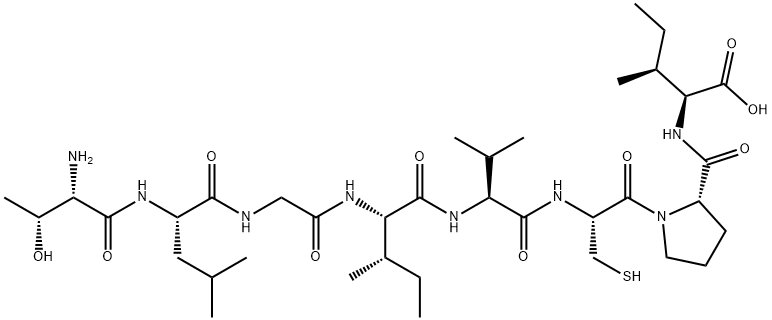160212-93-1
 160212-93-1 結(jié)構(gòu)式
160212-93-1 結(jié)構(gòu)式
常見(jiàn)問(wèn)題列表
HPV16 E7 (86-93) specific T cells are expandable upon IVS (in vitro stimulation) with cognate peptide-pulsed dendritic cells (DCs) and are reactive against peptide-pulsed targets or, in case of the E711-20 epitope-specific T cells, against HPV16 E7 expressing CaSki cell line.
For peptide HPV16 E7 (86-93), the only response against K562 cells pulsed with the corresponding peptide was significantly blocked by anti-HLA class I Ab w6/32, which was not the case for HPV16 E7 expressing tumor cell line CaSki. Precursor T cells specific for HPV16 E7 (86-93) peptide is able to differentiate, at least in vitro, into HPVspecific effector cells.
HPV16 E7 peptide-loaded autologous dendritic cells (DCs) are able to stimulate a specific cytotoxic CD8+ T-cell response.
HPV16 E7 (86-93) peptide in IVS culture has specific T cell expansion. The HPV16 E7 (86-93) specific T cells produced does not recognize naturally HPV16 E7 expressing cell line CaSki. HPV16 E7 (86-93) peptides also has similar observations in transgenic mice. The HPV16 E7 (86-93) peptide is able to induce cytotoxic T lymphocyte (CTL) responses if loaded on the antigen presenting HLA class I molecules, but that the peptide appears not to be processed or presented by HPV16 infected cells.